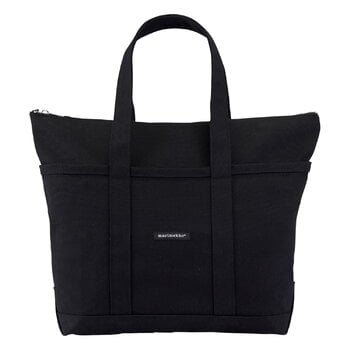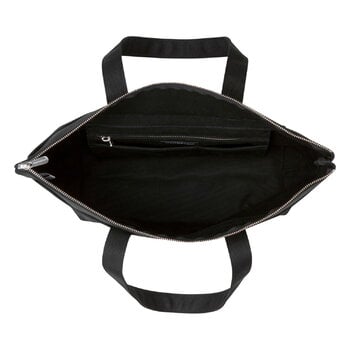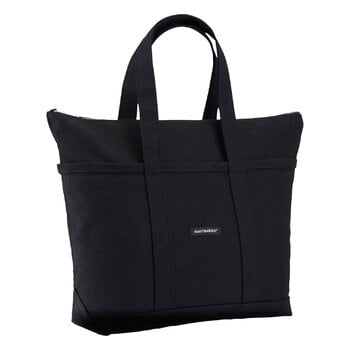Marimekko's Uusi Mini Matkuri is an updated and smaller version of the classic Matkuri tote bag designed by Ristomatti Ratia in the 1970s. Uusi Mini Matkuri is the perfect multipurpose bag: it doubles as a handbag and work bag.
Made of hard-wearing cotton canvas, the Uusi Mini Matkuri bag has a reinforced bottom for extra durability. The bag is equipped with a zip closure and a small zip pocket on the inside for keys and other small items, as well as two small open pockets for your phone or other items you may need to access quickly.









